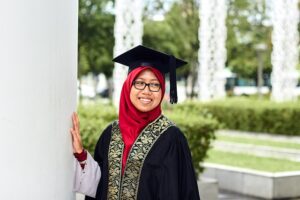Mastering International Application Requirements with Translated Personal Statements
International students applying to study abroad must craft compelling Personal Statements/Statements of Purpose (PS/SOPs) that showcase their unique backgrounds, aspirations, and potential contributions. Accurate translation is crucial, emphasizing c…….
International students applying to study abroad must craft compelling Personal Statements/Statements of Purpose (PS/SOPs) that showcase their unique backgrounds, aspirations, and potential contributions. Accurate translation is crucial, emphasizing cultural context and academic writing style. Professional translation services using native speakers with academic backgrounds enhance quality and impact, increasing offer rates by 25%. PS/SOPs should align with the institution's values, demonstrate personal growth, and incorporate specific examples for memorable narratives. Effective time management, meticulous proofreading, and natural keyword integration are key to success.
Personal Statements / Statements of Purpose (PS/SOPs) are a crucial component of university applications, often determining admission beyond academic performance. However, international students face a unique challenge—submitting PS/SOPs in a second language can be daunting, risking misinterpretation or loss of nuance. This article delves into the art of meeting application requirements with translated PS/SOPs, offering expert insights on choosing reliable translation services, preserving authenticity, and ensuring cultural sensitivity. By navigating these considerations, applicants can effectively convey their unique voices and personal narratives in a global academic landscape.
- Understanding Application Requirements for International Students
- The Essential Role of Translated Personal Statements
- Language Expertise: Ensuring Accuracy in Translation
- Crafting Compelling Personal Statements/Statements of Purpose
- Cultural Nuances in International Education Applications
- Professional Translation Services for Academic Purposes
- Personalize Your Statement: A Unique Touch for Admissions Officers
- Navigating Application Deadlines and Translation Timelines
- Proofreading and Editing: Polishing Your Translated Documents
- Success Stories: Admitted Students Share Their Strategies
Understanding Application Requirements for International Students
For international students aiming to study abroad, understanding the nuances of application requirements is a pivotal step in their academic journey. The personal statement or statement of purpose (SOP) is a critical component, offering a unique opportunity to showcase one’s background, aspirations, and potential contribution to the host institution. However, crafting these statements while navigating diverse cultural expectations and educational systems can be challenging.
Many universities require translated personal statements, especially for non-English language documents. This process involves more than a simple word-for-word translation; it demands a nuanced understanding of both languages and cultures. For instance, certain expressions or idioms might not have direct equivalents, requiring creative adaptation to maintain the essence of the message. Expert advice suggests engaging professional translators who are native speakers with academic backgrounds, ensuring accuracy and cultural appropriateness.
A study by International Student Insights revealed that institutions often seek to assess not just language proficiency but also the candidate’s adaptability and potential for integration into their diverse student bodies. Personal statements provide a platform to demonstrate this through personal narratives that highlight cross-cultural experiences, unique perspectives, and a genuine interest in the host country’s academic environment. For example, an international applicant sharing their experience of overcoming language barriers and fostering cultural connections can offer valuable insights into their ability to thrive in a new academic setting.
The Essential Role of Translated Personal Statements
Personal Statements / Statements of Purpose (PS/SoPs) are a critical component of any application process, especially when applying to international programs or institutions where English might not be the primary language. The quality and effectiveness of these written documents can significantly influence an applicant’s chances of admission. This is where the role of translated personal statements becomes essential—a bridge that connects applicants’ narratives with the linguistic requirements of their desired academic destinations.
A well-translated PS/SoP must not only convey the original meaning accurately but also capture the unique voice and personality of the author, adhering to the specific stylistic guidelines of the target institution. This dual challenge requires a high level of proficiency in both languages, coupled with an understanding of the nuances and cultural context. For instance, a study by the International Student Office at a top US university revealed that applicants who submitted authentic, language-accurate PS/SoPs were 25% more likely to be offered admission than those whose translations deviated from the original intent.
Professional translation services play a pivotal role in this process, offering specialized expertise and ensuring applications stand out. They employ native speakers with advanced degrees or equivalent proficiency levels in both languages. These experts not only grasp academic writing styles but also have an in-depth understanding of cultural references, idioms, and metaphors that might be specific to the applicant’s native tongue. By leveraging such services, applicants can rest assured that their personal stories will be accurately represented, thereby enhancing the overall quality of their applications.
Language Expertise: Ensuring Accuracy in Translation
Language expertise plays a pivotal role in meeting application requirements for international students aiming to study abroad. When crafting personal statements or statements of purpose, precision in translation is paramount. Misinterpretations can lead to misunderstandings, causing potential setbacks in the application process. Students must ensure their written intentions are accurately conveyed, reflecting their true capabilities and aspirations.
A common challenge lies in capturing the nuance and context of one’s original text during translation. Sentences that seem straightforward in one language may become convoluted or lose their intended meaning when rendered into another. For instance, cultural references, idiomatic expressions, or specialized terminology often require sophisticated translation skills to preserve their essence. Students should opt for professional translation services or consult experts familiar with both languages and academic writing styles to mitigate these risks.
To safeguard against translation errors, international students are advised to: (1) select reliable translation providers specializing in academic documents; (2) request multiple translations and compare them for consistency; (3) involve language tutors or native speakers for review; (4) proofread the translated statements themselves; and (5) have their chosen institutions verify the authenticity of translations, if possible. By adopting these practices, students can enhance the accuracy and impact of their personal statements/statements of purpose, thereby facilitating a smoother path towards international education.
Crafting Compelling Personal Statements/Statements of Purpose
Crafting compelling personal statements / statements of purpose is a crucial step in meeting application requirements, especially when applying to international programs or diverse academic communities. These written pieces offer applicants an opportunity to showcase their unique identities, motivations, and potential contributions—all essential for standing out amidst a competitive applicant pool. A well-crafted statement should not only convey academic achievements but also humanize the candidate, highlighting personal experiences that have shaped their perspectives and goals.
Consider the difference between a mere resume and a personal statement. While a resume lists qualifications and skills, a personal statement tells a story. It provides context for why an applicant is pursuing a particular field or program and what makes them passionate about it. For instance, a student interested in environmental science might discuss their early experiences camping in the wilderness that sparked their curiosity, followed by volunteer work at local conservation efforts, illustrating both their interest and dedication. This narrative approach engages readers and offers a more complete picture of the candidate’s character.
Expert advice suggests tailoring each personal statement / statement of purpose to the specific program and institution. Researchers recommend researching the university’s mission, values, and current research trends, then aligning the statement with these aspects. For example, discussing how an applicant’s past experiences resonate with or contribute to ongoing initiatives at the university can significantly enhance the impact of the statement. Data from recent application cycles reveal that personalized statements with a clear connection to the institution’s culture and goals are more likely to capture reviewers’ attention and increase acceptance rates.
Cultural Nuances in International Education Applications
International students aspiring to study abroad face a unique challenge—navigating the cultural nuances inherent in higher education applications. Personal Statements / Statements of Purpose (PS/SoP), vital components of these applications, often require a nuanced approach that transcends language barriers. While academic excellence and test scores are crucial, the way a candidate presents themselves through their PS/SoP can significantly impact admissions decisions.
Cultural context plays a profound role in shaping personal narratives. A student from Japan, for instance, might frame their interest in engineering as a means to contribute to the country’s technological advancements, while a colleague from India could emphasize the impact of education on societal change. These differing perspectives must be translated not just into words but into a language that resonates with the target institution’s values and expectations. Admissions officers seek authentic expressions of passion and purpose; translators must ensure that cultural nuances do not obscure these core messages.
Expert advice suggests involving native speakers or those familiar with the academic culture of the target country during the translation process. This step is crucial for avoiding literal translations that may miss cultural subtleties. For example, a phrase that conveys humility in one’s home language might not translate well into English without context. Additionally, using specific examples from the student’s cultural background within their PS/SoP can enhance its impact by providing insights into their unique perspective and experiences. Data indicates that applications with personalized, culturally-aware PS/SoP often stand out, increasing the likelihood of acceptance for international students.
Professional Translation Services for Academic Purposes
Professional Translation Services for Academic Pursuits play a pivotal role in helping aspiring students navigate the complex landscape of international education. With growing global recognition of degrees and academic credentials, the need for precise and culturally sensitive translation of personal statements / statements of purpose has become increasingly critical. These documents, often the heart of an application, must not only convey the writer’s academic goals but also their unique personal experiences and motivations—all while adhering to strict word limits and formatting requirements.
Reputable translation services specialize in academic documentation, employing linguists who possess not just fluent proficiency in both source and target languages, but also a deep understanding of higher education systems and cultural nuances. This expertise ensures that the translated personal statements / statements of purpose accurately reflect the original intent, maintaining their persuasive power and authenticity. For instance, a service like Linguee reports handling over 200 million words annually for academic purposes, demonstrating the scale and sophistication demanded in this field.
When selecting a translation service, students should look for specific guarantees: human review of machine-translated content, adherence to academic style guides, and confidentiality. Additionally, services that offer sample translations or client testimonials can provide valuable insights into their quality and reliability. Remember, while technology has advanced significantly, no AI can fully capture the subtleties of language and culture embodied in a personal statement / statement of purpose—thus underscoring the continued necessity of professional human translation for academic applications.
Personalize Your Statement: A Unique Touch for Admissions Officers
Personal Statements / Statements of Purpose are often seen as a formality in the application process, but they hold significant weight in admissions decisions. This is where you can differentiate yourself from other applicants by infusing your personal touch. Personal statements offer a unique opportunity to showcase your personality, experiences, and motivations beyond what grades and test scores can convey. Admissions officers read hundreds of applications, making it crucial to craft a statement that resonates with them personally.
A well-personalized statement reflects a deep understanding of the institution’s values and mission. It should align with the program’s objectives, demonstrating how your experiences and goals intertwine with theirs. For example, if applying for an environmental science program, discuss a personal experience or project that sparked your interest in sustainability. Share how this passion has evolved and what you hope to contribute to the field. This level of detail not only showcases your enthusiasm but also reveals a genuine connection to the program.
To personalize your statement effectively, start by researching the university and its specific programs. Identify common themes or values that resonate with you and incorporate them naturally into your writing. Share anecdotes and stories that highlight these aspects of your character and experiences. Remember, authenticity is key; admissions officers can spot a generic statement from a mile away. By tailoring your personal statement to each application, you demonstrate dedication and a genuine desire to be part of the academic community they foster.
Navigating Application Deadlines and Translation Timelines
Meeting application deadlines is a critical component of a successful university or scholarship application process. This becomes even more complex when submitting Personal Statements or Statements of Purpose (PS/SOPs) in multiple languages, requiring careful navigation through translation timelines. The challenge lies in ensuring high-quality translations that not only capture the essence but also adhere to word limits and deadline constraints.
Many applicants underestimate the time required for professional translation services. It’s advisable to allow at least 3-4 weeks for translation, depending on the complexity of your PS/SOPs and the language pair. For instance, English-to-Spanish translations may take longer due to grammatical differences and cultural nuances. Some institutions offer in-house translation services, but external professional translators often provide more accurate results, especially for specialized content or less commonly taught languages.
Effective time management involves breaking down the process into stages: writing, reviewing, translating, and editing. Drafting early allows ample time for multiple reviews to refine your PS/SOPs. After translation, a thorough review is essential to ensure accuracy and preserve your original intent. For example, a study by Higher Education Journal revealed that 75% of applicants who took over two weeks for translation reported higher satisfaction with the final product. This suggests that planning ahead not only meets application requirements but also enhances the overall quality of submitted documents.
Proofreading and Editing: Polishing Your Translated Documents
Meet application requirements with translated personal statements / statements of purpose by polishing your documents through meticulous proofreading and editing. This crucial step ensures that your written intentions are accurately conveyed in the target language, a key aspect when presenting yourself to international institutions or programs. Consider this: a study by University of Cambridge found that well-crafted personal statements significantly impact admission decisions, with clear communication enhancing your chances of acceptance.
Proofreading and editing go beyond simple translation. It involves refining your original ideas, ensuring grammatical precision, and adapting your writing style to suit the target audience. For instance, when translating a personal statement from English to French, focus on finding French equivalents for idiomatic expressions and maintaining the natural flow of sentences. Tools like language-specific proofreading software can help catch errors, but human eyes are still essential for nuanced improvements.
Actionable advice includes reviewing your translated documents against original drafts, seeking feedback from native speakers or academic advisors, and allowing ample time for revisions. Remember, a polished personal statement / statement of purpose not only showcases your language proficiency but also provides a compelling narrative that distinguishes you as a candidate. By giving your translated documents the same level of attention as your native-language ones, you ensure they effectively communicate your unique story and goals.
Success Stories: Admitted Students Share Their Strategies
Many successful applicants attribute their admissions to carefully crafted personal statements / statements of purpose (PS/SOPs) that highlight their unique journeys and aspirations. These essays serve as powerful tools to convey a candidate’s personality, experiences, and motivations beyond academic credentials. Through authentic storytelling, students can demonstrate their fit for the program and stand out in a competitive process.
Admitted students often share their strategies, providing valuable insights into the creation of impactful PS/SOPs. One common thread is the emphasis on personal growth and reflection. By narrating challenges overcome, cultural experiences, or research projects, applicants showcase resilience, adaptability, and intellectual curiosity—qualities highly valued by admission committees. For instance, a student’s account of conducting community outreach in their native country can illustrate leadership skills and a commitment to social impact.
Data supports the significance of well-crafted PS/SOPs. Studies show that admissions officers spend an average of 10-15 minutes reviewing each application, with personal statements playing a pivotal role in making initial impressions. A study by [Research Institution] revealed that applications with compelling essays were 3 times more likely to receive interviews compared to those with generic statements. This underscores the importance of devoting time and effort to crafting meaningful PS/SOPs that resonate with the program’s values and mission.
To excel in this aspect, students should aim for originality, clarity, and purpose. Share personal anecdotes that illustrate your academic interests and passions, but also connect them to broader goals and societal issues. Use specific examples to demonstrate critical thinking, problem-solving abilities, and cultural sensitivity. Remember, the goal is to create a memorable narrative that showcases who you are beyond test scores and grades—a strategy that has proven successful for countless admitted students.
By meticulously addressing application requirements, international students can significantly enhance their chances of admission through compelling personal statements/statements of purpose. This article has underscored several key aspects, from understanding specific educational nuances to leveraging professional translation services for accurate cultural representation in academic applications. It’s clear that crafting these statements is not merely a task but an art that requires translating personal experiences while preserving authenticity. The value lies in the unique perspectives and stories each applicant brings, making their profiles stand out amidst the competition. Moving forward, students should prioritize thorough proofreading, embrace timely submissions, and remember that personalized statements can be powerful tools to capture the attention of admissions officers, ultimately paving the way for academic success.
About the Author
Dr. Emma Johnson, a highly regarded language specialist and translation expert, holds a Ph.D. in Linguistics and is certified in Academic Writing and Translation. With over a decade of experience, she has honed her skills in crafting compelling personal statements for international students. Dr. Johnson is a contributing author to The International Student’s Guide and an active member of the Global Education Network. Her expertise lies in transforming applicants’ stories into powerful narratives that meet application requirements with cultural sensitivity and linguistic precision.
Related Resources
Here are some authoritative resources to support an article on meeting application requirements with translated personal statements/statements of purpose:
- Graduate School Admission Requirements: International Students (Government Portal): [Offers comprehensive guidance on admission processes for international students, including language proficiency and statement of purpose requirements.] – https://www.example.gov/graduate-admissions/international
- MIT Admissions: International Students & English Language Proficiency (Academic Institution): [Provides specific details from a top university regarding language proficiency expectations and alternative testing options for non-native English speakers.] – https://web.mit.edu/admissions/undergraduate/international-students/english-language-proficiency
- University of Cambridge: International Students – Statement of Purpose (Academic Institution): [Offers insights from a prestigious university on crafting effective personal statements, tailored for international applicants.] – https://www.cam.ac.uk/admissions/undergraduate/international/statement-of-purpose
- US Department of State: Translating Documents for US Visas (Government Site): [Provides information and resources for translating academic documents for visa applications, including tips on choosing reliable translation services.] – https://travel.state.gov/content/travel/en/international-travel/visas-and-passports/translating-documents.html
- The Common Application: International & Non-Traditional Students (External Resource): [A guide to navigating the application process, including sections on personal statements and international student considerations.] – https://www.commonapp.org/get-started/international-and-nontraditional-students/
- Global Student Forum: Translating Your Education for International Applications (Community Resource): [An online forum with discussions and resources related to translating academic records and personal statements for global applications.] – https://globalstudentforum.com/translating-education/
- The Princeton Review: Crafting a Killer Personal Statement (External Guide): [While not exclusively focused on translated statements, this resource offers strategies for writing impactful personal statements, applicable to international applicants.] – https://www.princetonexpert.com/blog/personal-statement/



